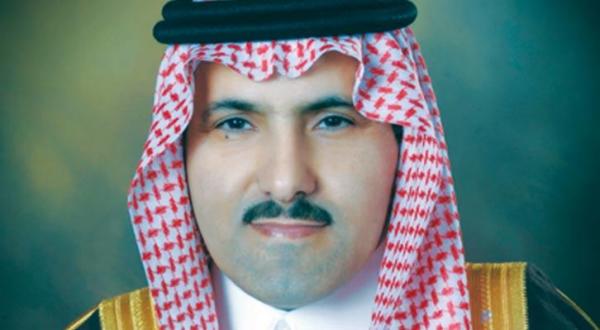London- Four days into a Saudi-led military intervention in 2015 — code-named Operation Decisive Storm— footage of Saudi Ambassador to Yemen Mohammed Saeed Al Jaber holding an AK-47 machine gun and aiding in the process of evacuating diplomats and journalists was circulated.
Little details were given at the time, but it was later discovered that Al Jaber was the staring hero of a three-hour extraction and rescue operation of embassy diplomats and a team of reporters, who with his aid successfully reached the safekeeping of the Kingdom of Saudi Arabia. The ambassador was firsthand involved in the evacuation.
Speaking openly, ambassador Al Jaber told Asharq Al-Awsat that his delayed exit was a result of Gulf states prioritizing a peaceful solution and decision to curb military escalation.
Ambassador Al Jaber had only left Aden under intense firing of arms and direct threats—proving that countries forming the Saudi-led Arab coalition stood in favor of a peaceful solution to prevail. Nonetheless, with Yemeni President Abdrabbuh Mansur Hadi’s call for aid against armed coup militias led to a direct military intervention.
A military intervention, consisting of a coalition of nine African and Middle East countries and led by Saudi Arabia, was launched and aimed at restoring authority to the legitimately-elected government of President Hadi.
Al Jaber objects to all accusations directed against Saudi Arabia for allegedly ‘destroying’ Yemen, noting that the Kingdom hosts approximately 50 percent of Yemen’s labor force.
Some 15 million Yemenis benefit from transactions sent by relatives presiding and working in Saudi Arabia. The Kingdom never sought praise for its open policy with Yemenis, but considers good neighborliness a duty it has been fulfilling over the past decades, said ambassador Al Jaber.
When asked about when the war in Yemen would come to an end, Al Jaber said that a spade must be called a spade.
A political process known by the Gulf initiative was given comprehensive support so much that the United Nations Security Council based its resolutions on it, eventually leading to convening the National Dialogue Conference for Yemen. But Houthi militias and armed loyalists backing ousted president Ali Abdullah Saleh, receiving Iranian support, ended the chances of that political process materializing, Al Jaber explained.
Ever since, international efforts have been poured into reconciling Yemenis among themselves, whenever a step forward is taken everything tumbles down, Al Jaber added.
The war was launched by armed militias, and as soon as they commit to a political process based on the three references which are the Gulf initiative, the outcomes of national dialogue and UN Security Council resolution 2216 the legitimate government will no longer have a reason to fight back resting assured that the right of Yemeni people will be done justice, Al Jaber said.
Hadi’s government called for the Kingdom’s aid and that of the coalition after it had feared for the future of Yemen as it descended into chaos when Iran-aligned Houthis and Saleh loyalists staged an armed coup against government institutions and establishments.
The Saudi-led military intervention is keen to support pro-government forces and not harm either Yemeni people or national infrastructure. Coalition forces stage surgical military operations, carefully directed and with appropriate force. “The main objective is to support pro-legitimacy forces, and nothing else,” Al Jaber commented on military operations in Yemen.
Al Jaber also stressed that no specific timeline was disclosed on concluding operations in Yemen, but said it was rather an objective-based plan.
“Most of the goals have been achieved, but Houthi militias still unwarrantedly involve Yemenis and public assets in their war, pushing them towards death and destruction,” Al Jaber added.
When it comes to Yemen ambassador Al Jaber believes that each Russia and Iran do not play a single role or adopt the same policy.
Moscow was one of the states that stood in support of resolution 2216, backed the Hadi-led government and was one of the ten countries that sponsored the Gulf initiative.
Al Jaber added that Russia’s ambassador is present among the group of 18 diplomats working for a positive and effective solution in Yemen.
As for Iran, the cleric-led regime in Tehran has long infiltrated the now war-torn country, with its Yemen agenda dating as far as 1996 and 1998, and not just as of 2011, said the Saudi diplomat.
Iran used dummy corporations to deploy undercover agents affiliated with its elite Revolutionary Guard as representatives of these companies to study potential projects in Yemen, Al Jaber disclosed on Iranian activity in the region.
Guard units were chiefly tasked with surveying local tribes and Yemen’s social fabric.
Upon the guards’ withdrawal, not a single project or project-related activity was registered in Yemen, said Al Jaber. Meaning it was nothing more than a cover for an alternative agenda.
From then on Iran began providing guidance and incremental support to Houthis.
Revolutionary guard members then trained and armed sectarian militias. Until this very day, the putschists receive unlimited logistics and arms trafficked by Iran.
Al Jaber concluded by affirming that Yemen, far and foremost, remains a state of Arab heritage and that Iran’s expansionist ambitions will not prevail.
Different from Iran’s national army, the Revolutionary Guard is intended to protect the country’s Islamic system and expansionist agenda, answering only to the supreme leader and not the national president. The guard originally is an ideologically driven militia that later received constitutional verification upon the 1979 cleric-led revolution.
Iran has been leading a proxy war across the region, backing Hezbollah in Lebanon, PMF units in Iraq and Houthi militias in Yemen.
